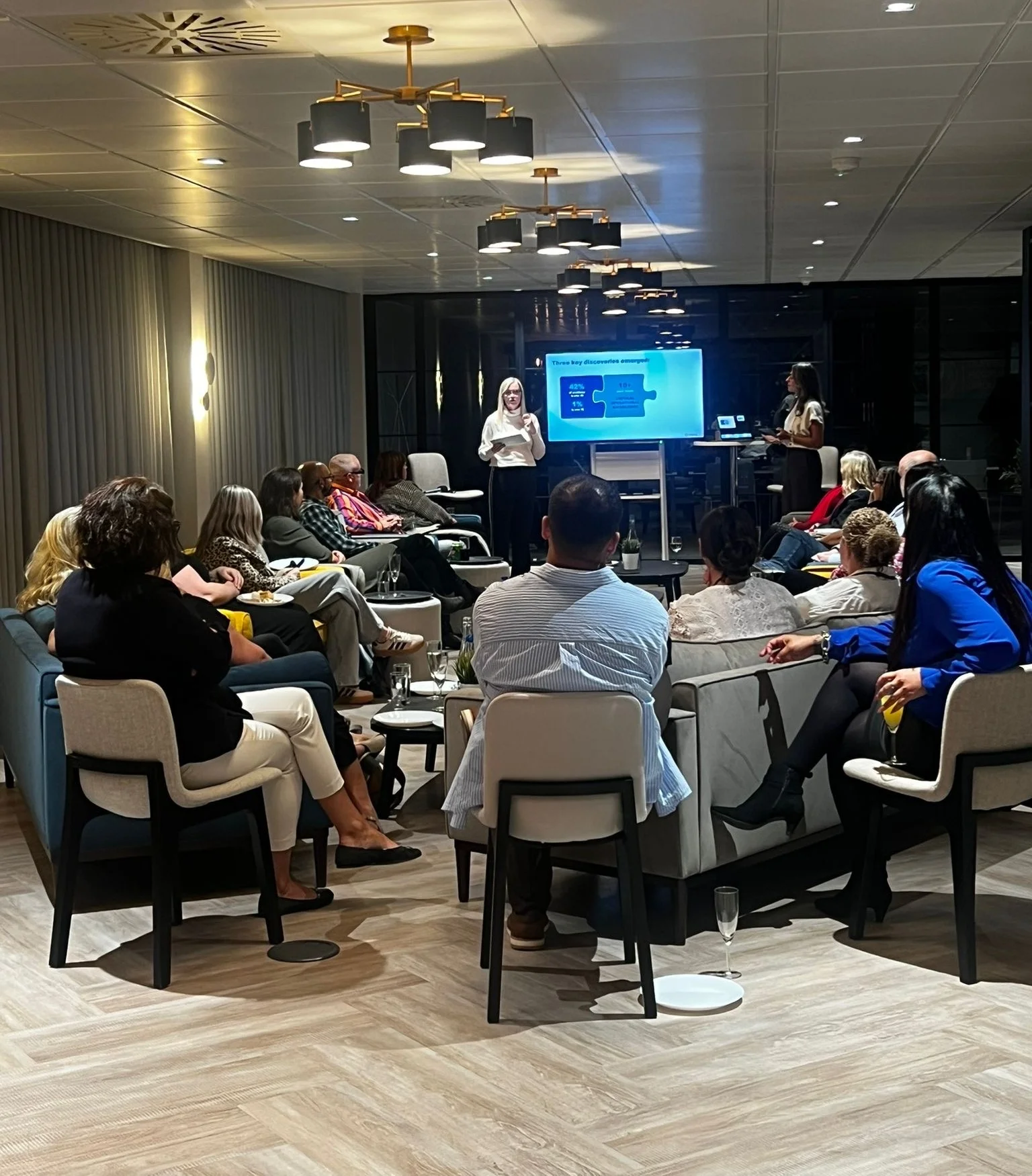In 2025, the UK workforce has never been more age-diverse - or more divided in how organisations value that diversity. With nearly one in three UK workers now aged 50 or over, and record numbers extending their careers beyond traditional retirement, age diversity is fast becoming one of the defining workforce issues of our time. Yet many employers remain uncertain about how to harness this potential.
Age inclusion isn’t simply a moral imperative or a matter of compliance - it’s a strategic necessity. Organisations that embrace age diversity are discovering stronger teams, richer collaboration, and greater experience and innovation from their employees.
This prevalent topic was the focus of our recent HR event ‘Unlocking the Power of Age-Diverse Talent’. We were joined by Veolia’s HR Director Sally-Anne Dudley and Head of Employee Experience Shilpa Parmar. Both discussed Veolia’s pioneering journey to build an age-inclusive organisation.
Here, we share key insights from this invaluable conversation and several powerful considerations for organisations ready to prioritise age diversity.
1) Age Diversity Is More Than A ‘Nice to Have’ - it Is Business Critical
Too often, conversations about diversity and inclusion focus on gender, ethnicity, or neurodiversity, while age remains the forgotten dimension. Yet as Veolia’s leaders highlighted, the workforce is ageing fast, and organisations can’t afford to overlook the skills and knowledge of experienced employees.
The challenge is not the ageing workforce itself, but the bias and barriers that prevent it from thriving. Age bias - conscious or unconscious - affects hiring decisions, promotion opportunities, and even access to training. By tackling these issues head-on, Veolia reframed age not as a challenge, but as a source of competitive strength.
Their message was clear: “We can’t talk about the future of work without valuing the people who built it.”
2) Rethink Retirement and Retain Knowledge
One of the most takeaways from Veolia’s journey is the importance of rethinking retirement. When experienced employees leave, organisations don’t just lose capacity, they lose institutional knowledge, mentorship, and cultural continuity.
Veolia’s flexible approach has turned this potential loss into a gain. The company offers ‘returnship’ and phased retirement options that allow employees to transition gradually into new working patterns or return after time away.
3) Culture Is the Foundation of Inclusion
Policy changes matter, but real inclusion begins with culture. Veolia’s ‘Power of Everyone’ strategy has embedded age inclusion across every layer of the organisation, from leadership conversations to day-to-day team dynamics.
By promoting cross-generational mentoring, manager and employee toolkits, and an internal myth-busting campaign, the company has helped to shift mindsets. Older employees are no longer seen as nearing the end of their journey but as integral contributors to innovation and performance.
Sally-Anne and Shilpa both shared how this approach has improved retention, strengthened engagement, and gained the organisation national recognition, including being highly commended by The Sunday Times as one of the Best Places to Work for the over 50s.
But perhaps the most meaningful impact has been internal- a culture where employees of all ages feel seen, valued, and empowered.
4) Data and Dialogue Drive Real Change
Veolia began their transformation journey with two essential change factors: data and honesty. Understanding the age profile of the workforce and creating space to talk about age openly were crucial early steps for the business.
At the event, attendees reflected on how few organisations actually know the age distribution of their workforce, with many sharing that their workplaces do not have open conversations about ageing, retirement, or later-life careers. Sally-Anne and Shilpa emphasised that data-driven insight, coupled with authentic dialogue, allows HR teams to identify barriers and design meaningful interventions.
When leaders normalise conversations about age, they remove stigma and unlock solutions that work for everyone.
5) Leadership Commitment Is More Impactful Than You Think
Perhaps the most powerful message from Veolia’s story is that inclusion doesn’t happen by accident. It takes visible, consistent commitment from the top. Leaders must model inclusive behaviour, challenge assumptions, and ensure that age-inclusive practices are built into every stage of the employee experience, from recruitment and development to recognition and progression.
Sally-Anne and Shilpa shared that when leaders treat age inclusion as a strategic priority instead of a side project, it can transform how the whole organisation thinks about talent.
Conclusion
As the UK continues to navigate shifting demographics, skills shortages, and longer working lives, organisations that understand the power of age diversity will be better positioned to thrive.
The lesson from Veolia’s story is both simple and profound: when you create space for every generation to contribute, share knowledge, and grow, everyone wins.
In 2025 and beyond, the future of work won’t belong to a specific age demographic, but to those organisations that embrace the power of everyone.

